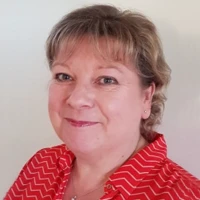You are here:
- Home
- >
- Knowledge Hub
- >
- Thought Leadership
- >
- Supporting Digital Nursing Leadership.
17 January 2022
Jacqueline Davis can pinpoint the moment she became interested in using digital to support the delivery of nursing care. She was working as head of nursing for practice professional development at a district general hospital and investigating the death of a teenager following an appendectomy.
There were some key issues around communication and handovers between professionals, between shifts, between theatre recovery, recovery on the ward, between the registrar and the night team.
And at every single point of that communication there was no evidence. It was impossible for me as the senior investigating officer for that incident to try and piece together who knew what, when and where.
That would not have been the case, she thought, had a digital solution been in place. There would have been an easily accessible record of what had happened, and the nurses who had missed observations would have been reminded to take them.
Rapidly, Ms Davis realised she wanted to become a digital nurse – supporting the implementation of those kinds of solutions. But there was a problem.
I looked around the country and there were a few digital roles, but all at band seven. I was an 8C. So there was nowhere to go in the NHS for somebody who was suddenly becoming very interested in the digital future of nursing.
Ultimately she decided to move into industry, where she’s now worked since 2014. Her current role is clinical adoption specialist at healthcare IT company System C.
My job is to help NHS trusts from before contract signature to after end of project, to help them roll out solutions well.
And while Ms Davis says nursing involvement in digital is more present than it was – pointing in particular to the increasing number of clinical nurse information officer (CNIO) roles – she also feels there’s further to go.
I know CNIOs from an 8A to nine and everything in between. So the expectations of that role are vastly different.
And sometimes there is an expectation that a digital lead on a year’s secondment will be enough to ensure a project rolls out smoothly. “But they’re new to digital, and they can also be new to leadership.
Ms Davis and her System C colleagues decided they wanted to try to offer some support. And so they have created a clinical digital leads network, bringing together an array of staff from across their customer sites – CNIOS, digital leads, digital matrons and clinical transformation leads among them.
The company has also partnered with the Florence Nightingale Foundation to develop the Early Digital Healthcare Leadership Programme, a three-day residential course covering a range of key skills for digital leaders – influencing, communication and leadership among them.
The first course ran in October, with plans already underway for 2022. Ms Davis hopes the course will help further advance the idea of nursing digital leadership because, she argues, it’s a function that is always going to be needed.
Healthcare in the future won't be digital healthcare, it is just going to be healthcare that is fully enabled by digital functionality. So you're going to constantly need people who are expert in that field to support other people in using the latest tech to improve patient care.
The first Early Digital Healthcare Leadership Programme ran in October 2021, with feedback from attendees so positive that plans are already underway for 2022.
"The whole programme was practical and immediately applicable to my day-to-day role."
"It has made me feel energised and excited about going back to work, facing the challenges that come my way."
"I have been able to learn new ways of working."
"Supports empowering of clinical leaders working with IT teams."
"Provided me with the opportunity to network with others who work in my profession."
"I came to the course with issues around imposter syndrome and the last three days have helped me to look at this differently, in a much more positive way."
"An amazing opportunity to learn new skills to develop professionally and personally."
To find out more, click here.
This article first appeared on nursingtimes.net in January 2022.

Jacqueline Davis
Clinical Adoption Specialist